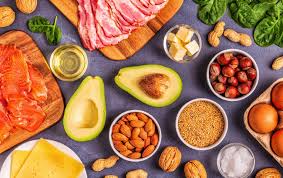# Eat Like a Greek God_ Your Ultimate Mediterranean Diet Guide
Embark on a culinary odyssey that transcends mere sustenance and embraces the essence of vitality, community, and history—welcome to the Mediterranean diet, a feast fit for the gods. This isn't just about eating; it's about savoring flavors that have danced across the tongues of philosophers, warriors, and poets. It's about nourishing your body with the same ingredients that have sculpted the health and longevity of one of the world's most storied regions. Let's unfurl the sails and set course for a way of eating that has captivated nutritionists and food lovers alike.
The Mediterranean diet, lauded for its health benefits and sumptuous variety, is not a fad or a restrictive regimen—it’s a centuries-old lifestyle born under the sun-drenched skies of Southern Europe. Picture this: olive groves nestled on rolling hills, azure waters teeming with fish, and vineyards stretching towards the horizon. It is from this idyllic landscape that we harvest the pillars of this heart-healthy diet.
At its core, the Mediterranean diet champions plant-based foods—fruits, vegetables, whole grains, legumes, nuts, seeds, and a bounty of herbs and spices that turn each meal into a symphony of flavor. Olive oil reigns supreme as the golden elixir that anoints every dish with its rich, peppery goodness. Seafood makes frequent appearances, offering its omega-3-rich gifts twice a week or more. Poultry, eggs, cheese, and yogurt are savored in moderate portions daily to weekly. Red meats and sweets are indulged sparingly—reserved for special occasions rather than daily fare.
But what truly sets this diet apart is not only what you eat but also how you eat it. The Mediterranean way is one of mindfulness and connection—meals are languorous affairs shared with family and friends, accompanied by spirited conversation and often a glass of red wine.
The evidence extolling the Mediterranean diet's virtues is as bountiful as the region's harvest. Research has shown time and again its protective effects against heart disease, stroke, type 2 diabetes, obesity, and even certain types of cancer. The secret lies not in any one component but in the symphonic interplay of all its parts—a confluence of nutrients that bolsters our body’s defenses.
To embrace this diet is to embrace variety; no single day mirrors another. Let's journey through a week on your new Mediterranean menu—each day an adventure in taste and nutrition.
Monday:
Breakfast: Greek yogurt drizzled with honey and topped with walnuts.
Lunch: A vibrant salad with mixed greens, cherry tomatoes, cucumber slices, feta cheese crumbles, kalamata olives and a dressing made from extra virgin olive oil and balsamic vinegar.
Dinner: Grilled salmon with a side of quinoa tabbouleh.
Tuesday:
Breakfast: A slice of whole-grain bread topped with avocado slices and a sprinkle of sea salt.
Lunch: Lentil soup simmered with carrots, onions, garlic, bay leaves, and thyme.
Dinner: Oven-roasted chicken breast with rosemary served alongside roasted vegetables like bell peppers, zucchini, and eggplant.
Wednesday:
Breakfast: A smoothie made from spinach, kiwi fruit, banana, flaxseed and almond milk.
Lunch: Whole-grain pita stuffed with hummus, shredded lettuce, diced tomatoes and slices of grilled halloumi cheese.
Dinner: Baked cod with a lemon-parsley crust served with steamed asparagus and wild rice.
Thursday:
Breakfast: Oatmeal cooked in almond milk topped with sliced almonds and fresh berries.
Lunch: A mezze platter featuring dolmas (stuffed grape leaves), tzatziki sauce (yogurt-cucumber dip), baba ganoush (eggplant spread), served with whole grain pita wedges.
Dinner: Cauliflower steak brushed with harissa paste roasted alongside chickpeas.
Friday:
Breakfast: Poached eggs over sautéed greens with a sprinkle of dukkah spice blend.
Lunch: Nicoise salad with seared tuna or canned sardines on top of mixed greens tossed in a light vinaigrette dressing.
Dinner: Ratatouille—a stewed vegetable mélange—served with a slice of crusty sourdough bread.
Saturday:
Breakfast: Shakshuka (eggs poached in a spicy tomato-pepper sauce) garnished with cilantro.
Lunch: Farro salad tossed with roasted beets, goat cheese crumbles, arugula leaves and walnut pieces dressed in citrus vinaigrette.
Dinner: Grilled lamb skewers marinated in yogurt and mint served over bulgur pilaf.
Sunday:
Breakfast: Fresh figs halved and filled with ricotta cheese sprinkled with pistachios.
Lunch: Roasted red pepper bisque served with a side of olive tapenade on whole-grain toast.
Dinner: Pasta primavera featuring whole wheat spaghetti tossed with sautéed garlic shrimp and an array of colorful seasonal vegetables.
Transitioning to the Mediterranean diet isn't about overhauling your pantry in a day—it's about making incremental changes that align with this heart-healthy approach. Start by incorporating more fruits and vegetables into each meal; swap out butter for olive oil; choose whole grains over refined ones; enjoy seafood twice a week; reduce red meat consumption; season dishes abundantly with herbs rather than salt; appreciate dairy as an accompaniment rather than the main event; savor sweets on rare occasions; drink plenty of water throughout the day; if you consume alcohol, do so in moderation; sit down to eat without distractions; share meals whenever possible.
As you embark on this gastronomic voyage toward wellness inspired by Aegean breezes and terracotta-tiled roofs bathed in sunlight, remember that eating like a Greek god isn't just about what ends up on your plate—it's about relishing life's flavors. Therein lies the true spirit of the Mediterranean diet—an invitation to celebrate food as an art form that nourishes both body and soul. So grab your fork (and maybe your passport) because your ultimate Mediterranean diet guide doesn’t end here—it’s just getting started.
